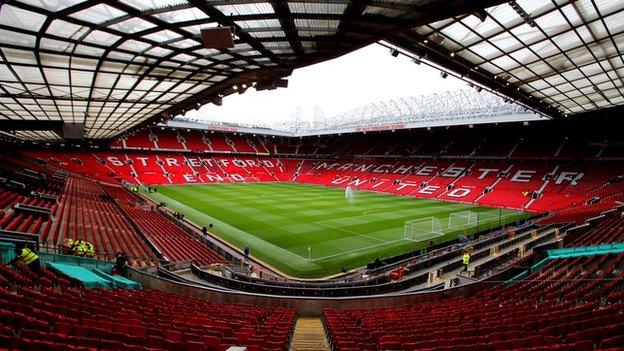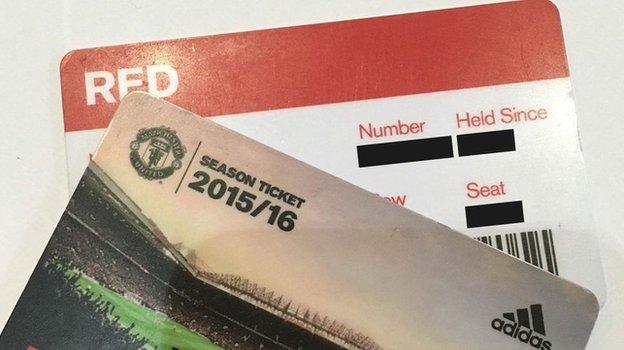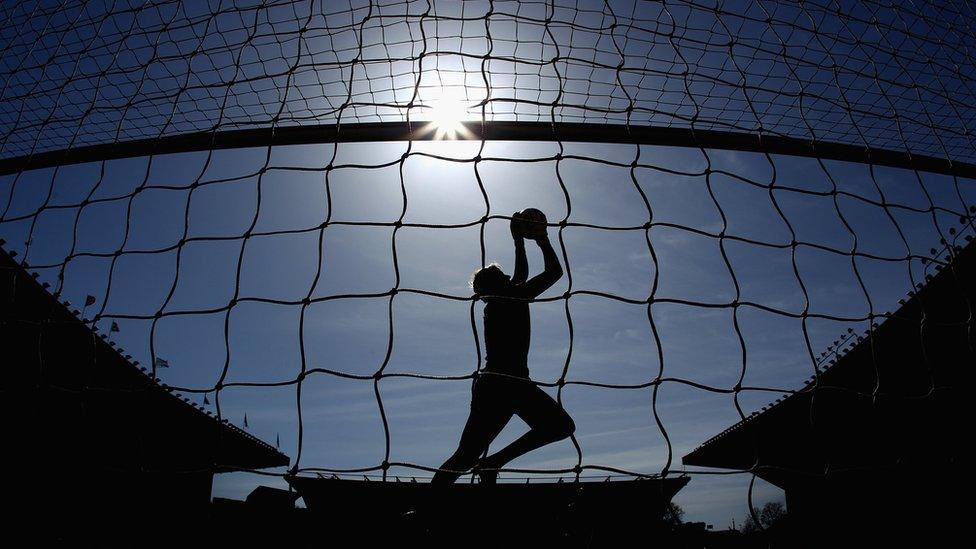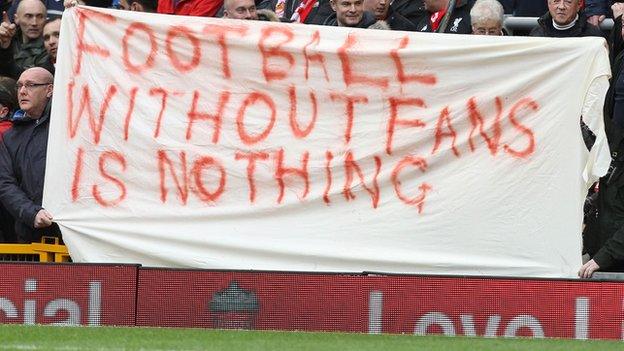'Clubs could stop online touts with secondary ticket exchanges'
- Published

Manchester United have seized around 1,750 season tickets in the past two years
Clubs could prevent fans being ripped off by creating their own secondary ticket exchanges, says the Football Supporters' Federation (FSF).
BBC Radio 5 live found football ticket-touting laws are being flouted, leaving fans vulnerable to online brokers.
Some ticketing websites have deals with clubs but others could be "duping" customers on "an industrial scale".
The FSF says supporters "would not mind paying an administration fee" to clubs to keep secondary ticket prices down.
"Any company that gets between fans and a club will try to make a profit," Michael Brunskill, FSF spokesperson, which represents the rights of football supporters in England and Wales, told BBC Sport.
"We understand fans might want to sell on tickets because they can't make it to a game, but our preference would be that clubs manage that."
Arsenal are one club that already provides an in-house service, external where season ticket holders who cannot attend a game can resell tickets to members.
The club says that 50,000 tickets were redistributed through their exchange last season, with 44,000 so far this season.
What is the law for reselling football tickets?
The general resale of football tickets was banned in 1994 because of safety fears over the possibility of rival fans mingling together.
Only outlets officially authorised by clubs can offer unwanted seats, with Everton and Tottenham having deals with one firm, Stubhub.
Another website, Twickets, has a deal with Crystal Palace where tickets cannot be sold for more than face value.
But overseas firms can avoid UK consumer law and the Society of Ticket Agents & Retailers warns the online trade allows unscrupulous firms to "dupe unsuspecting ticket buyers".
Under UK law, tickets advertised must include the cost and location of seats in the stadium, but during its research 5 live Investigates found many examples where this did not happen or the tickets arrived late.
The investigation also found that Premier League tickets with a face value of £23 were being be resold for as much as £130 each.
In a bid to clamp down on illegal trading, Manchester United have seized more than 1,750 tickets during the past two seasons.

These Manchester Utd season tickets were sent to one fan who ordered through Ticketbis
One firm, Ticketbis, was found to have distributed season tickets and it was also claimed it was reselling tickets associated with people already banned from a stadium.
When asked to respond to the allegations, Ticketbis, which is based in Spain, said it is a "secure online platform that works as an intermediary between individuals that want to buy and sell tickets in 40 countries". The company did not comment on the illegal sale of football tickets.
Brunskill added: "It's important fans understand there are different types of secondary ticket companies. Some have no affiliation with football clubs, and are often based offshore so are not subject to UK law.
"If anyone is planning to buy tickets, do your research because with these companies there is a danger that your tickets don't turn up.
"There is a place in the market for the fair reselling of tickets and we would like clubs to use their own in-house systems."
- Attribution
- Published21 February 2016

- Published10 February 2016

- Published20 June 2016

- Published7 June 2019

- Published2 November 2018
